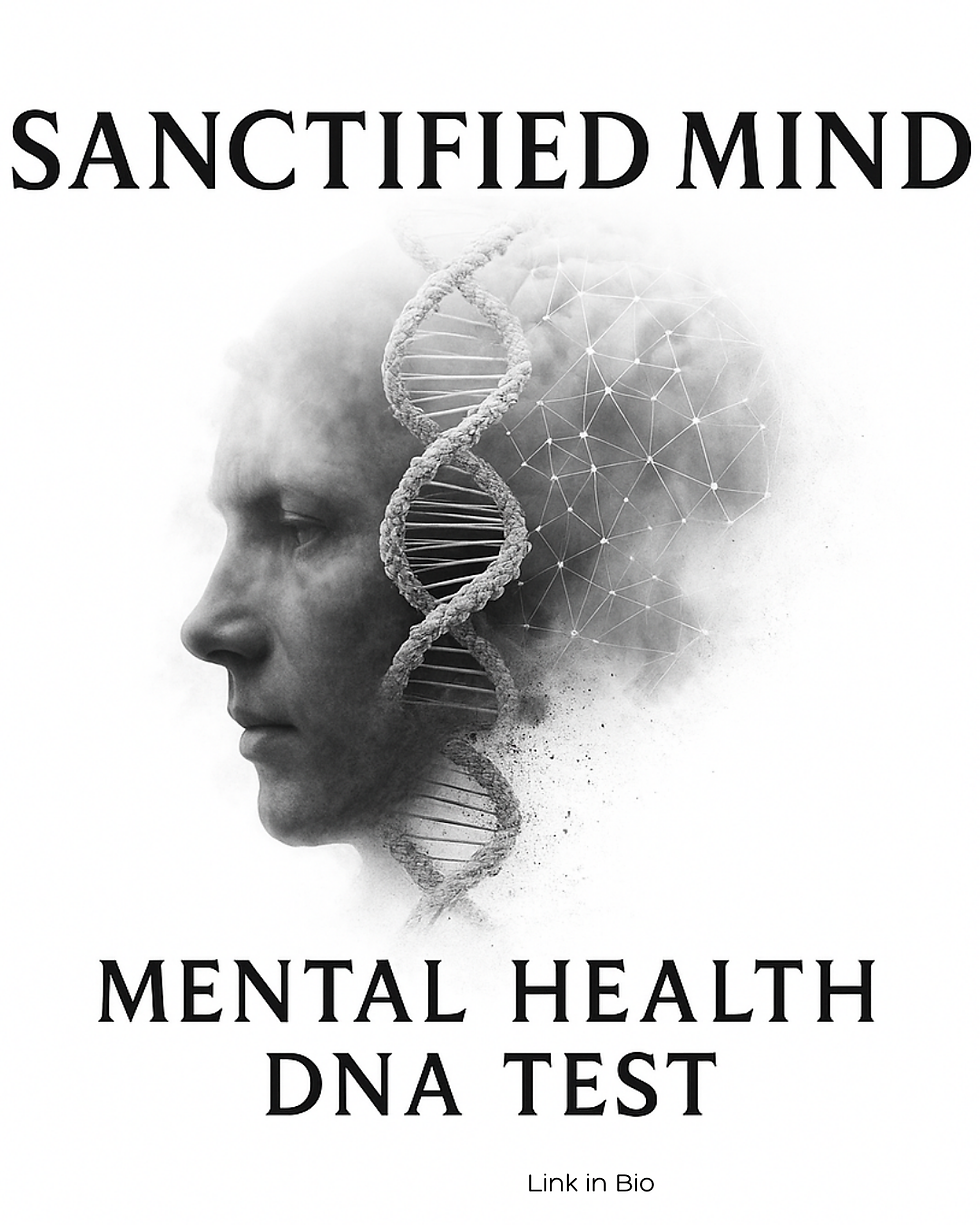
How Methylation and Gene Expression Help Us Understand Anxiety
- Niki Porter

- Sep 5, 2025
- 2 min read
At Sanctified Mind, we follow the science of mental health at the molecular level. Recent studies in DNA methylation (an epigenetic “on/off” switch for genes) and transcriptomics (real-time gene activity) are shedding new light on anxiety disorders.
What Is DNA Methylation?
DNA methylation is a chemical tag that helps regulate whether a gene is active or silent. It doesn’t change the genetic code, but it influences how the body responds to stress and environment. Importantly, methylation is dynamic and reversible—a reason researchers are hopeful about its potential role in treatment.
Methylation Patterns in Anxiety
Large-scale methylome studies have found specific methylation differences in blood cells of people with anxiety, particularly in genes related to neurodevelopment and fear response 【van den Oord et al., 2024】.
Social Anxiety Disorder (SAD) research shows unique methylation marks in genes tied to stress response and connective tissue biology, with early-life adversity strengthening these effects 【Zillich et al., 2021】.
Oxytocin receptor (OXTR) methylation has been linked to stronger cortisol stress reactions and higher amygdala activity—biological signatures of heightened fear and vigilance 【Wiggen et al., 2021】.
Transcriptomics: What the Genes Are Saying
Gene expression studies reveal that anxiety isn’t just psychological—it leaves a trace in how genes “speak.”
In social anxiety disorder, expression differences highlight MAPK/ERK signaling and immune pathways 【Henningsen et al., 2024】.
In generalized anxiety disorder, blood transcriptomes show widespread immune-related changes and overlap with the body’s conserved response to adversity 【Stelzhammer et al., 2022】.
These findings connect anxiety to both brain signaling and systemic biology.
Why It Matters
Early biomarkers: Research is pointing toward blood-based methylation and expression profiles that may one day aid earlier diagnosis 【Hovens et al., 2025】.
Targeted pathways: Stress signaling, oxytocin regulation, and immune circuits may provide new leads for personalized interventions.
Environment + biology: Epigenetic findings underscore that anxiety emerges from both lived experience and molecular regulation.
The Takeaway
Understanding anxiety through methylation and transcriptomics adds clarity beyond traditional psychology. It shows us that mental health is both biological and adaptable—influenced by environment, yet not set in stone.
References
van den Oord EJ et al., Transl Psychiatry (2024).
Zillich L et al., Transl Psychiatry (2021).
Wiggen AE et al., Transl Psychiatry (2021).
Henningsen K et al., Transl Psychiatry (2024).
Stelzhammer V et al., Transl Psychiatry (2022).
Hovens JG et al., Clin Epigenetics (2025).



Comments